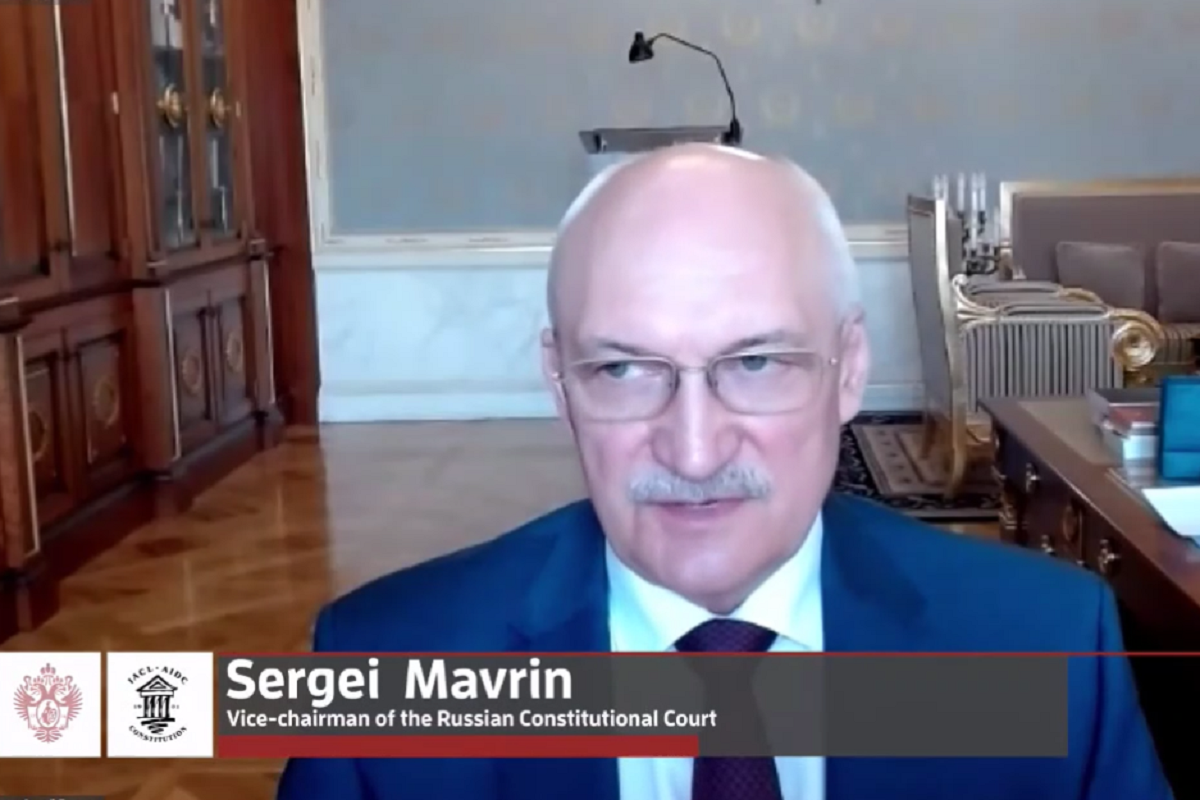'The Constitution is the link between the past, the present and the future'. Leading constitutionalists from around the world meet at St Petersburg University

St Petersburg University has hosted an international round table on constitutional identity. The participants discussed the influence of national identity, traditions and values on the formation of a constitutional system of justice.
The association brings together academics and practitioners from dozens of countries with different cultures and legal systems.
The meeting of constitutional scholars from all over the world — from Europe, USA, Japan, Australia, Argentina, Brazil, Singapore, Turkey, China, practicing lawyers and judges of constitutional courts — was the first event held in Russia under the aegis of the International Association of Constitutional Law.
Traditions manifested in the legal context, the texts of constitutions, may become a link between the past, the present and the future, even in states that have undergone political and social transformations, revolutions and historical upheavals. However, since the concept of identity has only recently been introduced to jurisprudence from the social sciences, there are diametrically opposed opinions on the concept of constitutional identity among jurists, ranging from scepticism and criticism to optimistic expectations. Some scholars see the concept as a universal consensus. Others, however, draw attention to its complex and situational applicability.
Scholars argue that constitutional identity is directly linked to acute social problems such as: the protection of minority interests; the challenges of national consolidation; integration into the global community; and the implementation of international treaties.
Sergei Belov, Dean of the Faculty of Law at St Petersburg University, explains the misunderstanding that arises between the national legal communities regarding the basic principles and ideas of constitutionalism, by the lack of involvement of Russian scholars in international research projects.
I hope that this round table will create an environment conducive to the development of communication and more active participation of the Russian legal community in a dialogue with international scholars.
Sergei Belov, Dean of the Faculty of Law at St Petersburg University
Sergei Mavrin, Vice-Chairman of the Russian Constitutional Court, noted that the emergence of the concept of ‘constitutional identity’ in constitutional legal practice in Russia is linked to the necessity to avoid the proliferation of extreme forms of supranational regulation: ‘Universal legal principles should not endanger the constitutional identity of states. A reasonable combination of the unique and the universal should be enriching rather than divisive.’ Meanwhile, the judge pointed out that the problem of the intrusion of supranational standards into national legal systems is not exclusively a Russian problem: ‘It is something that many national constitutional bodies beyond our country have come to realise.’
Another problem with the idea of constitutional identity today is that it has been widely misused. Some countries invoke the concept to circumvent the implementation of international treaties. This leads to sharply negative opinions among the EU member states. This has happened with the decisions on migration policy in Hungary and judicial reform in Poland. The International Court of Justice justified the position contrary to the provisions of the EU agreements by referring to the constitutional identity of these countries.
The scholars note the rapid transformation of the attitude of the academic community towards the concept of constitutional identity. In the 1990s, it was seen as a plausible safeguard clause used to reassure EU member states during the process of European integration. Now, however, many jurists view it as hazardous. However, as Pietro Faraguna from the University of Trieste (Italy) reminded, constitutional identity constitutes a subject of the EU Treaty and therefore must be recognised as a legal concept and cannot be excluded from legal practice. The challenge for lawyers, he argued, is to identify malpractices and create instruments of protection against them.
Some scholars argue that national constitutional values should be interpreted in line with European values and the general principles embodied in the EU Treaty. The concept of identity, lawyers explain, involves a potential conflict between national public law and international law. Although the constitution does not exclude that international law may be applied within the national territory, it defines to what extent it is acceptable under domestic law.
During the round table, scholars also discussed the specifics of implementing the concept of identity in a multicultural society, the possibilities of protecting diversity and supporting religious and ethnic minorities. It is important to remember that the constitution has transformative powers: it can modify the mode of interaction between governmental institutions and the population and eventually strengthen society.
We should always be open to all voices and opinions. This is very important for all participants.
Helle Krunke, First Vice-President of the International Association of Constitutional Law, Professor at the University of Copenhagen
‘When we talk about constitutional identity, we are first and foremost talking about the differences,’ said Sergei Belov. Human rights or the principle of the supremacy of law and the separation of powers are the unifying foundations of constitutionalism and constitutional systems in different regions, in different cultures that cannot define this concept.
‘There is a need for more debate and discussion, both in terms of understanding the concept and in terms of realising what it means for individual constitutional systems,’ stressed the Dean. ‘Hopefully, this subject will become an occasion for dialogue both in the international arena and at the national level. I believe that our round table has made a certain contribution to the development of this dialogue and offered some insights into the development of the theory of constitutional identity,’ said Sergei Belov.

